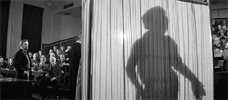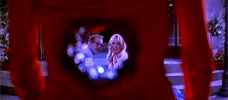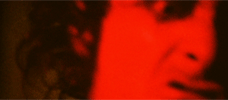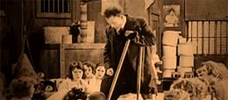Reviews
Jennifer Chambers Lynch
USA, 1993
Credits
Review by Rumsey Taylor
Posted on 24 October 2007
Source MGM DVD
Categories 31 Days of Horror
We coast through the foyer and adjacent rooms of an enormous mansion, privy to some elaborate party. The mansion is filled with guests in formal attire, and replete with art of considerable value. As with any other museum, we are not to touch its contents, only to view and acknowledge their great beauty. The composition centers on what is an obvious replica of the Venus de Milo, and the title card fades in afore it; in this manner, Boxing Helena’s deceptively rich virtues are made apparent.
There is a little boy attending the affairs, inquisitively peering in to each room. “Hard work and persistence will get you anything in the world,” says a friend of the family to him, reciting the Cavanaugh family motto, projecting the boy’s father’s success and renown. The boy, Nick, will spend the remainder of his life pathologically attempting to meet his father’s approval. Flash forward thirty-or-so years, and Nick has become a windswept waif of man, his speech is delivered delicately in sighs. He departs his father’s funeral in his BMW, makes a quick call on the most enormous portable phone you’ve ever seen, and proceeds to his inheritance.
Nick enters the vacant mansion much in the same way we did in the opening scene. The Venus de Milo is still there, and from this point onward it’s not much more than an incidental decoration, but it is a symbol of oppression of formidable, if unintended potency, a beautiful women incapable of escaping your gaze—or, if you happened to have inherited one from your dead father, your mansion.
Enter Helena. She’s first seen on one of Nick’s 9-o-clock jogs, which culminates in him ascending a tree right outside Helena’s window. She’s dressed in black lingerie, and caresses her brassiere with a glass of wine, oblivious to Nick’s gawking, and exotic in a gently urgent breeze. This is one of Boxing Helena’s key images, and if you don’t realize the curious, if contrived eroticism of a saucy brunette in her underwear (and apparently, in front of wind machine in the corner of her bedroom) - she does all but lick her lips lusciously and wink at you in slow-motion - then you have little appreciation for the charms of well-crafted throwaway art. To Doctor Nick Cavanaugh, she is more than this, a living, physical manifestation of his deepest urges, embodying the nature of his voyeuristic lust—he may never touch her, for in doing so he would violate the prohibitive relationship between art and audience.
But there is a flaw to this arrangement, in that Helena’s utility as the very literal object of Doctor Nick Cavanaugh’s affection remains unrealized. Unbeknownst to Nick, Helena has a guest on this particular evening, Ray, or rather, an immeasurably sleazy Bill Paxton. Their tryst (apparently a regular meeting, and one devoid of passion) is interrupted by Nick’s outside rumbling, and Helena orders Ray to leave. He dons only his underwear, sunglasses, and leather jacket. “I’m gonna go get laid,” he says to her both excitedly and agitatedly—as undeveloped and sporadic as his character inherently is, he might as well enter the film and say this at thirty-minute intervals.
Nick’s grief is enormous, and he returns home draped in more sweat than his body seems capable of exuding. This cements his alibi - I haven’t found an appropriate place to mention Nick’s girlfriend, who here thinks he’s been out jogging extra hard - and this experience seems to motivate him to make arrangements to see Helena again on more formal terms. Accordingly, he conceives a party - not unlike the one in the opening scene, apparently with a few of the same guests who haven’t aged a day in thirty-or-so years - and invites Helena. This all roughly occurs in the first half-hour of the film, and it’s not clear at this point how Nick knows Helena, or precisely what inspires his deep-seated fetishism. In a brief flashback he remembers one of his mother’s love affairs, one he happened to interrupt. Any justification of this event I find forced, because the flashback is so brief and unsubstantiated—basically, his mother (whom he sees naked) is a beauty, and treats sex casually. Helena seems to embody the same basic traits, but the comparison ends here. I suppose it’s not entirely relevant how Helena has entered Nick’s life, just that she has entered his life—if Helena specifically wasn’t the receiver of Nick’s gaze, another woman would be.
There are some allusions to a past relationship—upon greeting him at his party, Helena does acknowledge that she knows Nick, and that the two have had a past affair. Perhaps any time that might have been devoted to establishing their history is wisely spent establishing the very unique circumstances of their relationship in the present, which, for better or worse, is the paramount strength of Boxing Helena. At the very least, it’s a film lathered in sexual intrigue of a prohibitive sort, exclusive to the rich and introverted. It’s stuck firmly in the now, the period of great infatuation preceding a romance, and unconcerned with how that infatuation develops or how it may conclude. Narratively, the film makes little sense, but this is precisely its charm; it’s a film that, paradoxically, would be worse if it were any better.
At the ensuing party, which occupies approximately twelve minutes of the total running time, little happens in regard to the plot—Helena arrives, is short with Nick, removes most of her clothing and dances in his garden fountain, and leaves with another guest before realizing she’s left her purse. But this scene is integral in manifesting Nick’s lust for Helena. Wearing only a slip, she twirls in the fountain—this is shot in luxurious slow-motion, with every bead of liquid draping her supple, inaccessible body. Helena exists as this, an image, and this Nick realizes. His lust may not be manifested on reciprocal terms. So he will entrap her.
One car accident and several hundred milligrams of painkillers later, and Helena has become Nick’s prized possession: a semi-conscious, bed-ridden amputee, a living, shouting, beautiful work of art. Nick cuts the phone lines, quits his job, and tends to his incapacitated guest at all times—and when she rejects his hospitality, he lies on his living room carpet amongst a collection of 8x10s of Helena in her previously perfect form, or rewatches footage from her fountain dance (which one of his guests had conveniently, and unbeknownst to me, filmed). The arrangement doesn’t improve for either party. So Nick removes her arms.
Women are regularly degraded in film, but seldom, if ever, with so little subtext as in Boxing Helena. It is so blatantly misogynistic that it becomes something of a marvel - a film rigidly intent to spin a tale of gothic sexuality, and failing on that promise, emerging as something impressively tasteless and ridiculous. It’s elitist camp, an accidental work of art, captivating for reasons for which its author did not intend.
The author in question would be David Lynch’s daughter, Jennifer Chambers Lynch. Prior to writing this film, Lynch’s sole author credit was “The Secret Diary of Laura Palmer,” one of numerous marketing tie-ins during the prime of Twin Peaks. It is a wholly provocative fiction, a contrast to Twin Peaks’ comparatively chaste affairs, describing Laura Palmer’s drug use without inhibition, enhancing the series’ central character’s mythology. I’ve not read this, and may not attest to its competency, but it is worth questioning how the Secret Diary may preface Boxing Helena’s misogyny. Her father is accused of this regularly, but he has also displayed great compassion toward the women in his films—specifically Sheryl Lee in Fire Walk with Me. It is curious that Lynch, having taken so many visual cues from her father, has an inadequate grasp of this compassion. The paralyzing obsession that permeates many of her father’s works, on the other hand, she comprehends well.
And being that Boxing Helena is expressly about obsession and little else, it ends without a satisfactory conclusion—but this is so appropriate, being that such an arrangement - the destruction of beauty, the satisfaction of an unappealing sexual predator - is better kept to the imagination (or in one’s dreams), for you to observe and not to touch.
More 31 Days of Horror
-

Alien
1979 -

The Elephant Man
1980 -

My Bloody Valentine
1981 -

Who Can Kill a Child?
1976 -

Cannibal Holocaust
1980 -

Let Sleeping Corpses Lie
1974 -

John Carpenter’s Vampires
1998 -

Jaws 2
1978 -

A Warning to the Curious
1972 -

Wolf
1994 -

The Survivor
1981 -

Cannibal Ferox
1981 -

The Nights of Terror
1981 -

Death Becomes Her
1992 -

Alice, Sweet Alice
1976 -

Body Double
1984 -

Invocation of My Demon Brother
1969 -

Phantasm II
1988 -

Emanuelle and the Last Cannibals
1977 -

The Wicker Man
1973 -

Maniac Cop
1988 -

The Legend of the 7 Golden Vampires
1974 -

The Penalty
1920 -

Boxing Helena
1993 -

Chew on This
2005 -

Night of the Creeps
1986 -

Night of the Lepus
1972 -

Near Dark
1987 -

Army of Darkness
1992 -

The Brood
1979 -

The Lift
1983 -

Amsterdamned
1988 -

Silent Witness
1999 -

The Shaft
2001
We don’t do comments anymore, but you may contact us here or find us on Twitter or Facebook.



